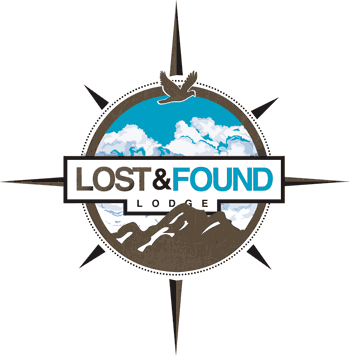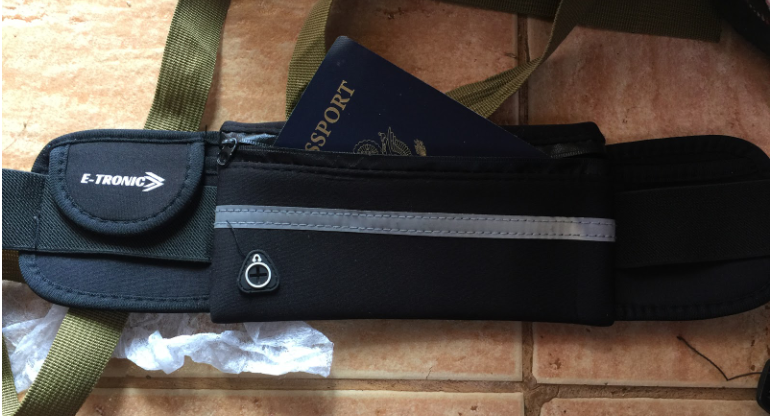Panama is generally a safe place to travel. It is one of the safest countries in Central America with a current level 1 travel advisory (which is exercise normal precautions). I suggest always checking the most up to date travel advisories before visiting any country. For U.S. citizens, you can check with the embassy here for up-to-date travel advisories:
https://pa.usembassy.gov/u-s-citizen-services/security-and-travel-information/
And enroll with STEP (Safe Traveler Enrollment Program) for your country’s embassy, which basically notifies the embassy of whatever country you plan on traveling to that you will be in that country, in case of emergency. For U.S. citizens interested in enrolling with STEP, see the link below:
In this article, I’ll go over personal safety tips I’ve found effective as well as ones I stumbled upon in my research to help you avoid being the victim of a crime or avoidable ill circumstance. I will also address some broader safety issues that pertain to Panama and some basic travel safe hacks:
Most areas are safe to travel in Panama. However, the U.S. State Department advises against unnecessary travel to the Mosquito Gulf or the Darien Region due to high crime rates.
Avoid traveling at night and stay in well-lit areas when you do. Aside from higher chances of robbery or assault, walking at night opens you up to the possibility of being accidentally struck by a car, bus, bicycle or motorcycle. The relationship between pedestrians and motor vehicles varies country to country, but the best thing you can always do is make yourself more visible. I suggest bright clothing and perhaps buying a reflective device that can attach easily to your backpack or reattach to your pants or shirt sleeve. You can buy them at a bicycle store, at a construction store, a camping section of a sporting goods store or from a variety of vendors online. I bought mine at REI for less than five dollars.
Panama is generally safe for solo travelers, male or female. For female travelers, if you hear sexual or crude remarks, the best thing to do is to ignore them completely. It's a mostly harmless machismo culture that rarely results in physical sexual assault, so don’t challenge or reciprocate, and you should be fine. However, just like in any other country across the globe, it’s best to be aware of your surroundings and not put yourself in potentially dangerous situations.
Common sense is the most important crime prevention tool at your disposal. Some people ask, how can I not look like a dumb tourist? Sorry, you’re going to look like a tourist no matter what, even if you think you’re doing well to seamlessly blend in, and that is absolutely fine. What you should avoid is being seen as a dumb rich tourist. That is the number one way to find yourself a target of petty thieves. Leave your name brand clothes, flashy watches, and jewelry at home. I’d suggest just buying most of your clothes at the local market or value store (not a tourist market). Especially clothing like underwear, socks, and t-shirts are almost always cheaper to buy in the country you’re visiting than to pay extra for luggage. And if you’re dressed like a local, you’ll more easily blend into the crowd.
Panamanians are generally very welcoming to tourists and happy to see extra revenue come into their country. Don’t assume the worst of people anywhere you travel. But there are criminals in every country in the world, so keep your eyes open. Observe what other locals are doing when unsure. For example, if you see the bag rack empty on a bus and everyone clutching their bags, it’s a smart choice to do the same. Common sense, respect, and vigilance will get you very far.
Don’t party too hard. While I would never say don’t have fun, avoid getting extremely intoxicated if you want to go out at night. Generally Panama is known to be pretty safe for solo travelers, but it’s best to travel with someone when you can, especially if you’re out at night. Criminals are less likely to target groups and having someone watch your back is never a bad idea. So if you want to go out and party, make sure you have other people with you and don’t get so intoxicated to the point where you’ll get yourself in a bad situation.
Always keep your passport close, without physically touching it. If you touch your money or passport every time you step onto a crowded bus or enter somewhere iffy, you are making the job of potential thieves that much easier. I’d suggest keeping it in a secure bag near your chest or under your armpit, or in deep and securely in your clothing bag. You can purchase special passport bags online or at the airport. You don’t have to spend a fortune, but I’d get something of decent quality that also has an RFID-blocker. Thieves nowadays can scan the RFID chip on your credit card and steal your information without even reaching in your bag. An RFID blocker is a good way to prevent this from happening. Here is an RFID-blocking passport bag that I highly recommmend:
https://www.amazon.com/Tronic-Edge-Waist-Packs-Comfortable/dp/B073HF2RN9
Keep your valuables in more than one spot. I typically keep a twenty and the small bills I have for riding buses or bartering in a front pocket, so in the case, I do get mugged or pickpocketed I can give up the small bills. As far as a robber knows, that's all you have. You’ll want to have enough money in the easy-access pockets so that you won’t be grabbing from your stash over and over again. So, for example, the hundred dollars in your right sock, shouldn’t be your go-to cash during happy hour. Also, keep your bag on you or attached to you in some way.. A simple carabiner or looped strap could be the difference between losing your purse and not.
Make backup copies of your passport, identification, debit/credit cards, etc. and keep them someplace separate and secure. I also try to have an extra couple of bank cards and alternative forms of identification with these too, and a backup phone or other device with internet access, if feasible. While you’ll still have to replace a passport if lost or stolen, the replacement process will be easier if you have copies and backup documents to prove your identity. Also, copies will be adequate for many other things while you wait, such as checking into hostels or transferring money. With the availability of digital credit cards now, I’d suggest a digital card, as one of your backup cards in case your debit card is lost or stolen. I use square cash and have it linked to my main bank, so if the other card is compromised I can access that account. Another benefit is I can have people transfer money instantly, in case I’m in a sticky situation and need money fast. It is quick, convenient, and secure. Square cash also offers a physical (and customizable) card for free. It also has bitcoin trading, referral bonuses, and stock trading options, if those are things that interest you. If you’d like to sign up, we can both get five free dollars with this code: WWJDRMB @ https://cash.app/app/WWJDMRMB
I consider myself a healthy paranoid traveler. When traveling around Mexico, I formed the habit of stashing some backup money in a zip lock bag shoved inside a petroleum jelly container. Even a particularly apt thief going through your possessions is likely to pass on your inconspicuous used personal care products and go for the easy stuff like cash, electronics, and jewelry. I also always lock everything when locks are available. But hey, say your lock gets broken, once again, they probably won’t steal your lotion.
Travel Insurance is always a good idea. I suggest buying one through your already existing life insurance or auto insurance policy, if available. You can also purchase a plan through your airline. Explore options to find which one is best for you. I never travel with valuables so I usually get the lowest-priced plan. At a minimum, your travel insurance should cover lost baggage, canceled or rerouted flights, lost or stolen passport charges, as well as basic medical expenses. When considering medical insurance, consider your health and likelihood of injury. Also, make sure that the travel insurance provider pays ahead of time, or you’ll have to bill them later. If you don’t, you’d need to plan accordingly for the possibility of paying the upfront medical costs if you get injured or fall sick while traveling.





